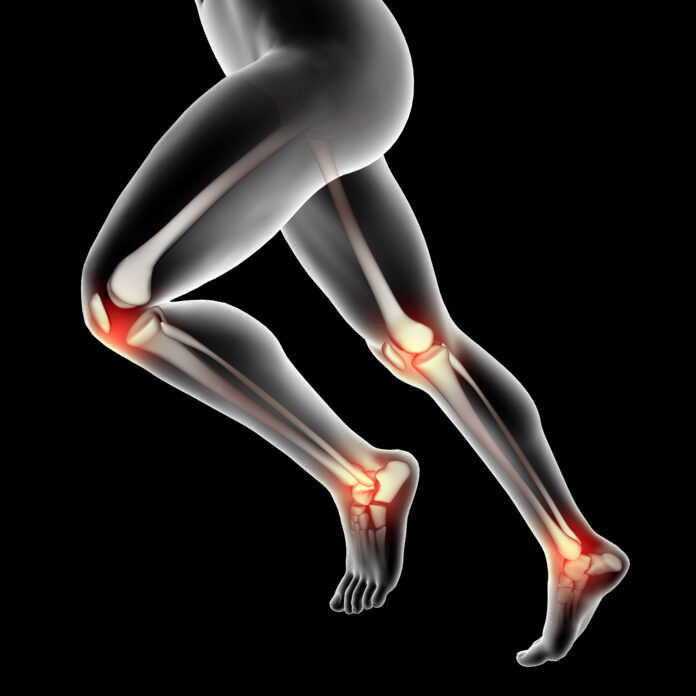Rheumatoid arthritis is not just a joint disorder, it is a chronic inflammatory disorder that affects not only your skeletal joints but also damages a variety of organ systems in your body. In some people, it approaches the circulatory system, respiratory system, and immune system. It also has adverse effects on vital organs of the body including, the heart, lungs, mouth, eyes, and skin.
What is Rheumatoid Arthritis?
Rheumatoid Arthritis is an autoimmune disorder that usually occurs due to an abnormality in your immune system. When your immune system starts to attack your own body tissues by mistake. RA causes your body to attack healthy joints and leads to widespread inflammation. So it is concluded that this is an inflammatory autoimmune disease that is not only limited to joint pain. 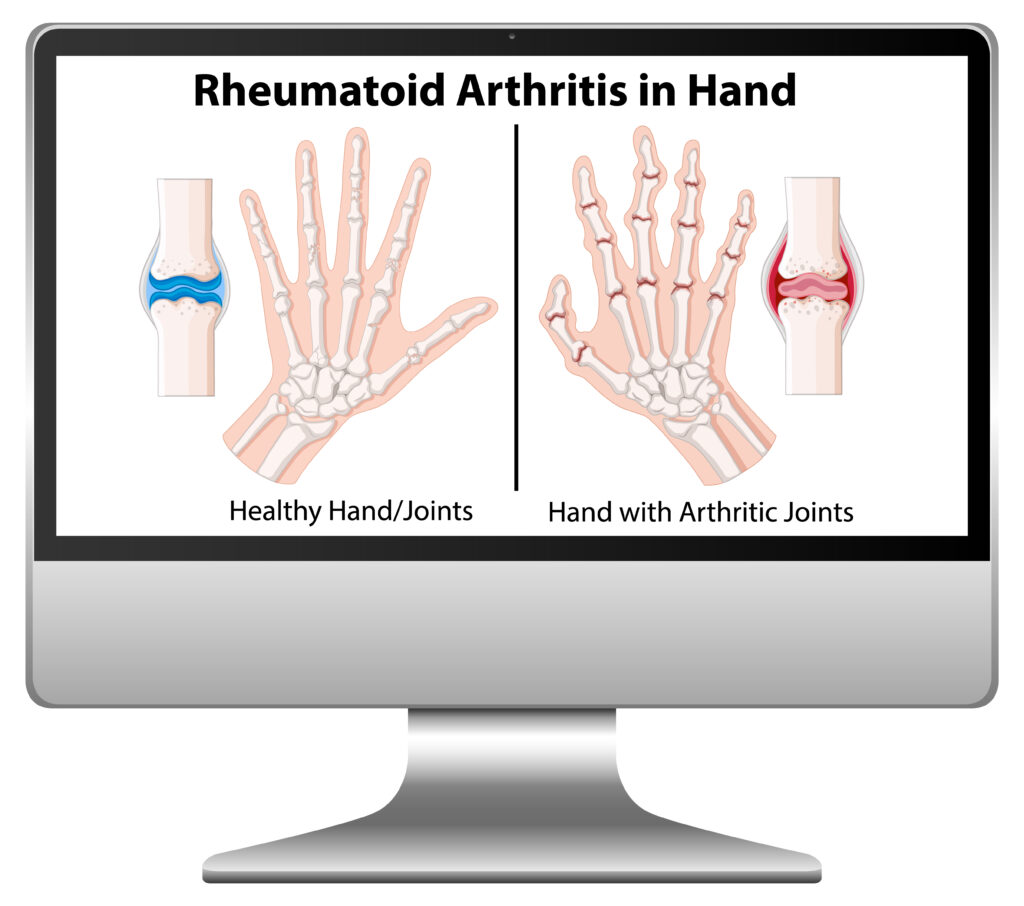 You cannot confuse it with osteoarthritis in which wear and tear damage occurs to your bones and joints but it damages the outer protective lining of your joints and causes an unbearable pain with swelling that leads to joint deformity and bone erosion. Generally, people get it as joint pain and inflammation, but you can observe some more symptoms throughout the body. Keep on reading to learn more about the Effects, Causes, and Symptoms of Rheumatoid Arthritis on the Body.
You cannot confuse it with osteoarthritis in which wear and tear damage occurs to your bones and joints but it damages the outer protective lining of your joints and causes an unbearable pain with swelling that leads to joint deformity and bone erosion. Generally, people get it as joint pain and inflammation, but you can observe some more symptoms throughout the body. Keep on reading to learn more about the Effects, Causes, and Symptoms of Rheumatoid Arthritis on the Body.
Causes and Risk Factors
Researchers are still trying to find out the exact cause of rheumatoid arthritis but the truth is still unrevealed. The most acceptable hypothesis is, it may be caused by the combination of two or more factors, including environment, genetics, and hormones.
It is a general perception that the immune system protects your body’s organs and tissues from foreign invasions but it may be weird to hear that Rheumatoid Arthritis urges your immune system to attack your own tissues, especially joints. Physical or emotional stress, smoking, or any infection are considered as the most powerful triggers.
Is Rheumatoid Arthritis Genetic?
According to research, many genes are found in the body that perform as risk factors for Rheumatoid Arthritis. But it is not restricted to genes, many non-genetic factors, including exposure to allergens, pollutants and sex also contribute to your risk of developing rheumatoid arthritis. People born with variations in the human leukocyte antigen (HLA) genes are considered as major victims of developing rheumatoid arthritis. HLA genes are the control center of your genetic makeup. According to recent research, they tell your immune system the difference between proteins your body makes and invader proteins from viruses and bacteria.
Rheumatoid Arthritis is a progressive disease that damages your joints and according to a survey, approximately 1.2 million people in the US live with this disease. Generally, people of age between 35 and 55 years old are at higher risk of getting affected by Rheumatoid Arthritis. Another report declares that women are affected by RA three times more than men. Efforts are still being made to find out the factors causing this disease but the exact one is still unknown. Some factors with uncertainty may include:
- Genetical Changes.
- Hormone Disturbance.
- Infections.
- Environmental Factors.
- Lifestyle Preferences.
Risk Factors
Along with the above-mentioned factors, some intense factors that may increase your risk of rheumatoid arthritis include:
Sex: Due to hormonal effects, women are affected more than men. They are more likely to develop rheumatoid arthritis than men. Age: Most people get it at the middle age i.e. 35 to 55. But it is not confirmed. Because rheumatoid arthritis can occur at any age.
Age: Most people get it at the middle age i.e. 35 to 55. But it is not confirmed. Because rheumatoid arthritis can occur at any age.
Use of Alcohol and Smoking: Unhealthy eating or drinking habits, such as smoking and alcohol drinking increase your risk of developing rheumatoid arthritis, particularly if you have a genetic history of developing the disease. Smoking also makes the disease worse.
Obesity: Being overweight increases the risk to be at a somewhat higher risk of developing rheumatoid arthritis.
Impacts on the Joints
Early signs of RA, include inflammation of smaller joints of the body like joints in hands and feet. Some common symptoms are:
- Pain
- Swelling
- Softness of joints
- Stiff joints at the start of the day.
It is a common symptom that people with rheumatoid arthritis experience severe morning pain in joints that lasts for 20 minutes or more. This worse sensation can be treated by taking a bath with warm water.
Muscle Weakness and Loss
In the case of living with RA, you must experience a tingling or burning sensation in your joints. These symptoms reappear with a period of remission and remain in come-and-go condition in flare-ups. This is also known as the initial stage of the disease and lasts for at least one month. Burning and tingling causes discomfort that makes it difficult to sleep properly. Lack of sleep results in a lack of energy and fatigue.
Systemic Symptoms and General Health
Initially, a healthy person may experience some general symptoms like swollen and tender joints with extreme fatigue and fever. RA also affects your appetite. Stiff joints with severe pain after a period of inactivity or in the morning are also examined in patients with RA. With the progression of disease, symptoms often spread to the shoulders, elbows, wrists, knees, ankles, and hips. RA not only involves your joints but there is a long list of organs that are affected by the disease. Nearly 50% of people who have Rheumatoid Arthritis experience pain and improper functioning in the organs like nerve tissues, bone marrow, blood vessels, salivary glands, claw toes, hammer toes, and kidneys. It also weakens your muscles and tendons, which creates problems in moving joints freely. The disease also badly affects your cartilage and ligaments.
With the progression of disease, symptoms often spread to the shoulders, elbows, wrists, knees, ankles, and hips. RA not only involves your joints but there is a long list of organs that are affected by the disease. Nearly 50% of people who have Rheumatoid Arthritis experience pain and improper functioning in the organs like nerve tissues, bone marrow, blood vessels, salivary glands, claw toes, hammer toes, and kidneys. It also weakens your muscles and tendons, which creates problems in moving joints freely. The disease also badly affects your cartilage and ligaments.
Impact on Organs and Systems
Cardiovascular System
The circulatory system contains blood, blood vessels, and heart. It transports blood throughout the body. Rheumatoid arthritis affects the system and its organs. A simple blood test can reveal the presence of antibodies called cyclic citrullinated peptide (CCP) and rheumatoid factors that cause the disease. The presence of these factors can be detected by a simple blood test. CCP and Rf are the most specific factors that doctors use to diagnose RA. Rheumatoid arthritis causes a decrease in hemoglobin, an oxygen-carrying substance on red blood cells. This indicates the deficiency of blood in the body called anemia. Hardening of arteries and low production of blood cells are also linked with RA. A protective layer around the heart, called pericardium, is essential for the safety of the heart, RA causes inflammation in that sac and heart muscles too, which may lead to myocardial infarction or congestive heart failure, in rare cases.
Inflammation in blood vessels is another fatal complication of RA. Affected blood vessels get too small or weaker to carry the smooth blood flow and this narrowing of vessels leads to problems related to peripheral nerves, skin, and heart. Early diagnosis may help you to reduce tissue damage.
Respiratory System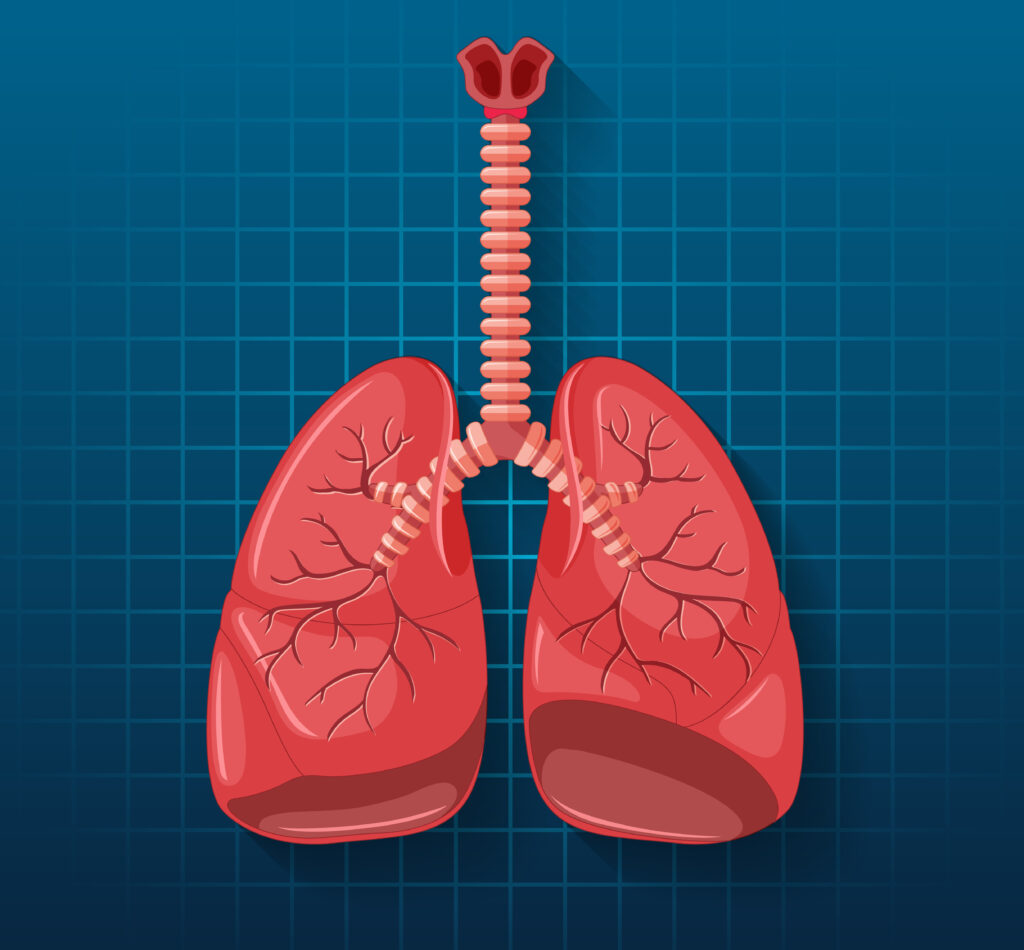 The system that transports oxygen to every cell of the body and is responsible for gaseous exchange in the body, known as respiratory system. RA also has bad impacts on respiratory system. RA causes a serious complication to the lungs known as pleurisy (scarring the lining of the lungs) and damages the tissues in the lungs. More respiratory problems related to RA are:
The system that transports oxygen to every cell of the body and is responsible for gaseous exchange in the body, known as respiratory system. RA also has bad impacts on respiratory system. RA causes a serious complication to the lungs known as pleurisy (scarring the lining of the lungs) and damages the tissues in the lungs. More respiratory problems related to RA are:
- Pleural effusion is an indication of liquid in the lungs.
- Pulmonary arterial hypertension.
- Pulmonary fibrosis.
- Lungs with rheumatoid nodules.
- Blockage of airways from windpipe to bronchioles.
Chest pains, coughing, and wheezing with shortness of breath are the prominent signs that help in the diagnosis of RA.
Effects on Eyes, Skin and Mouth
According to studies, RA causes dryness in different parts of the body. Affected eyes experience dryness that causes burning feelings. If left untreated may lead to eye infection or corneal damage. The eye’s middle layer is also damaged by this disease, known as uveitis.
From joints, the hard lumps of rheumatoid arthritis enter into the skin. They cause inflammation but are not painful. The nodules mostly grow near the pressure point like around toes, heels, or elbows. RA medications also cause rashes and hives. In the United States, nearly 2 to 3 million people suffer from RA or related disorders.
Dry mouth is another sign of RA, it makes your mouth and throat dry enough that you feel difficulty in swallowing. Severe dry mouth may lead to tooth decay, oral infection, and gum diseases.
Immune System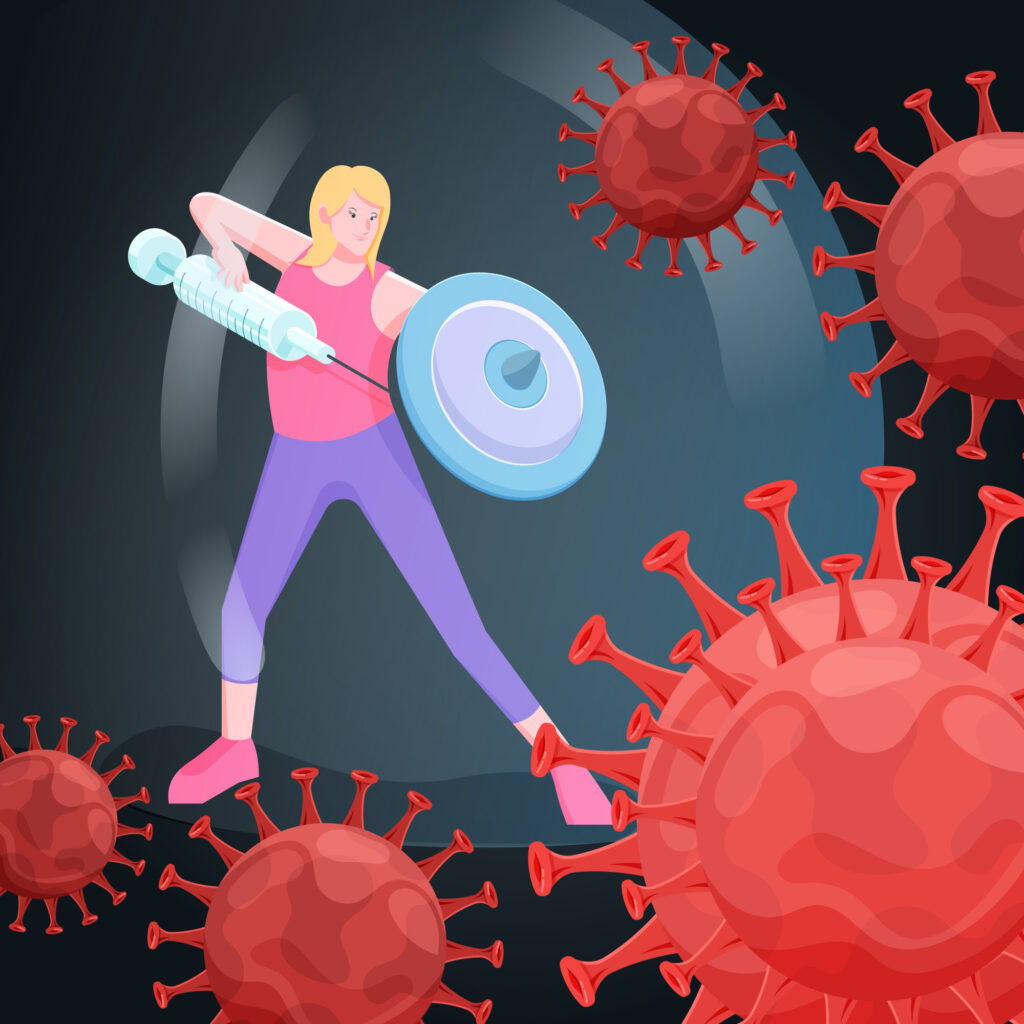 Your immune system is the defense power that helps you to limit harmful substances like viruses, bacteria, and toxins from entering your body. The immune system performs this job with the help of its army of antibodies that attack the invaders. Sometimes, a tragic incident happens, when immune cells mistakenly identify a healthy organ or organelle as an invader and attack that part of the body. That’s why RA is characterized by the failure of your immune system. Immune cells attack your joints and cause intermittent chronic inflammation throughout your body.
Your immune system is the defense power that helps you to limit harmful substances like viruses, bacteria, and toxins from entering your body. The immune system performs this job with the help of its army of antibodies that attack the invaders. Sometimes, a tragic incident happens, when immune cells mistakenly identify a healthy organ or organelle as an invader and attack that part of the body. That’s why RA is characterized by the failure of your immune system. Immune cells attack your joints and cause intermittent chronic inflammation throughout your body.
As it is an autoimmune disorder, the only way to treat it is to slow down the progression of the disease.
Sometimes, RA causes flu-like signs including sweating, lack of appetite, or short-term fever.
Treatment and Management Strategies
Medications and Therapies
You must seek medical help for the diagnosis and treatment of rheumatoid arthritis. Your doctor will manage and plan better for the treatment because the medications given for the treatment of rheumatoid arthritis have severe side effects. So it is a serious task to prescribe a medicine with less negative effects. Thus your doctor will better understand your condition and he will prescribe a medicine by studying your health history and severity of symptoms.
After following the prescribed formula, meet your doctor regularly. So that he can identify any negative side effects of medicine and may change your medicine. Some tests are also suggested to find how effective the drug is and if you have any negative effects.
Lifestyle and Home Remedies
Along with medications and treatments, some positive changes in your lifestyle, diet, and routine, will help reduce pain and inflammation in joints. So talk to your doctor about adding good food items or nutrients to your diet and minimizing some unhealthy foods. Generally, healthcare providers suggest adding natural raw foods to your diet and minimizing the use of processed foods, carbohydrates, and fats. So always follow the diet mentioned by your doctor.
Along with diet, you must add some exercises to relieve your symptoms. Try to lose weight which may help to reduce stress and joint inflammation. Lowering the levels of cholesterol in your body saves you from coronary artery disease. Take a diet that has less cholesterol.
Surgery to Treat Rheumatoid Arthritis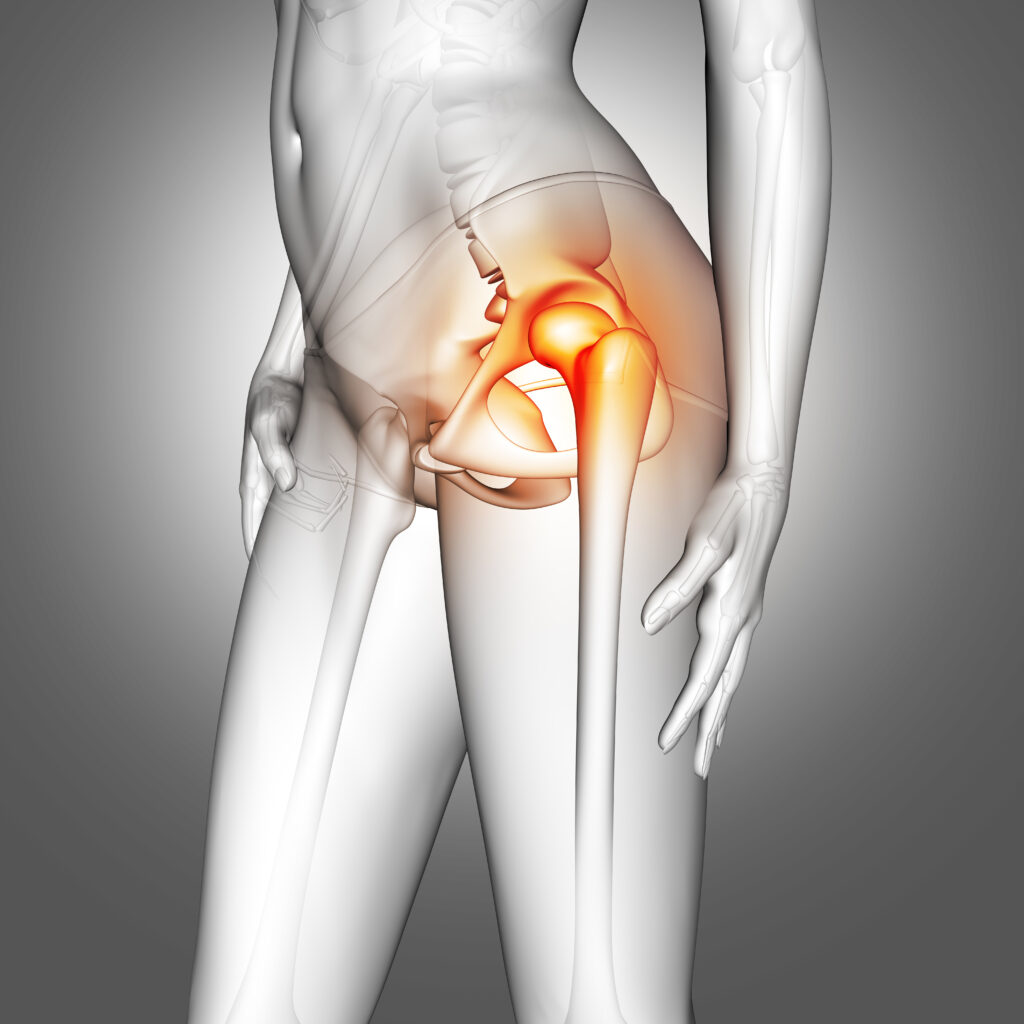 Severely damaged joints are recovered to restore their function through surgery. If the pain is uncontrolled and severe, your healthcare provider will suggest that you go for surgery. These surgeries include:
Severely damaged joints are recovered to restore their function through surgery. If the pain is uncontrolled and severe, your healthcare provider will suggest that you go for surgery. These surgeries include:
- Hip Replacement
- Knee Replacement
Conclusion
RA causes stiff and painful joints and often attacks your hands and feet joints. It damages your muscles, bones, cartilage, and tendons. You need a Rheumatologist to diagnose the disease. He will study your health history and the progression of the disease to suggest a treatment plan including medication, lifestyle changes, and therapies.
Your rheumatologist may recommend physical therapy to keep your muscles active. Exercise is necessary to strengthen your muscles. By adding these changes to your routine, you can maintain your range of motion, reduce injury risk, and promote joint stability. Massages and cold therapies are also recommended by physiotherapists.
Early diagnosis and treatment will ensure the slowing down of RA progression. Disease-modifying medicines will relieve your pain and healthy lifestyle changes may help you to improve your joint health.
RA also damages your mental health by inducing depression and anxiety. Some behavioral changes may help you manage these symptoms. Visit a licensed counselor or a psychologist to treat your depression. Psychotherapies are also considered the best treatment.
Always keep in touch with your doctor and inform him about any variation in your symptoms. He/she will guide you to manage the treatment plan for better results.

